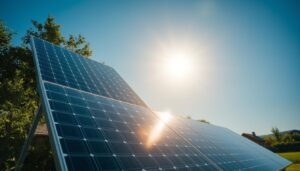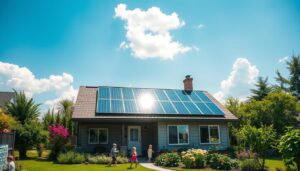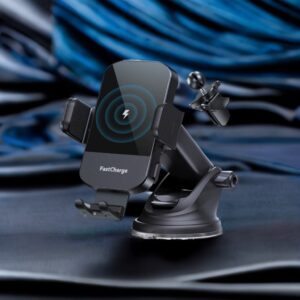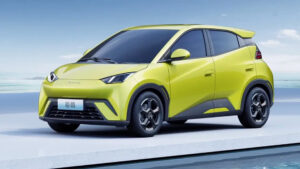
In recent years, the demand for renewable energy solutions has skyrocketed, leading to the emergence of innovative technologies. One of the most sought-after devices in solar energy systems is the hybrid solar inverter. This article will explore various aspects of hybrid solar inverters, their benefits, functionalities, comparisons with traditional inverters, and more.
What is a Hybrid Solar Inverter?
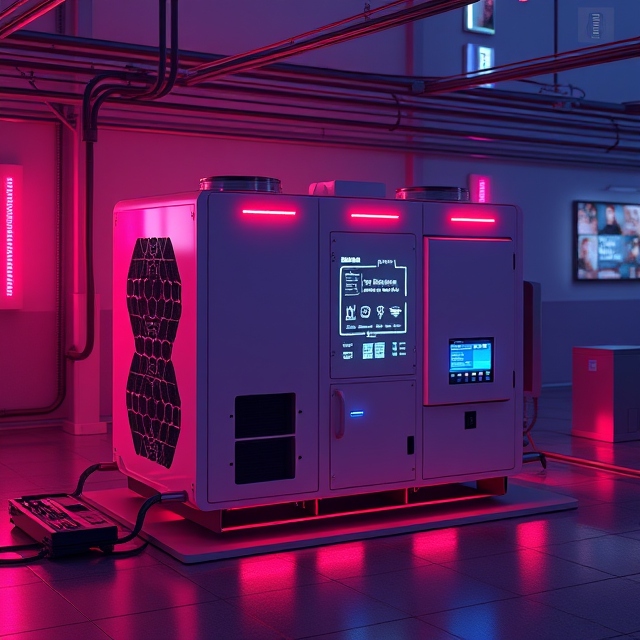
A hybrid solar inverter is a sophisticated device that allows for the integration of solar power with utility power and energy storage solutions, such as batteries. Unlike traditional grid-tie inverters, hybrid inverters can manage energy from both solar panels and battery storage. This remarkable feature enables users to optimize their energy consumption, harvest stored energy during peak times, and provide backup power during outages. Notable models include the Sol Ark inverter, Sunsynk inverter, Deye inverter, and Goodwe hybrid inverter.
Benefits of Using a Hybrid Solar Inverter
Using a hybrid solar power system offers numerous advantages:
- Energy Independence: Hybrid inverters allow homeowners to generate their own power and reduce reliance on the grid.
- Backup Power: When coupled with a battery, these inverters can offer reliable power during outages.
- Maximized Energy Use: Users can store excess solar energy for later use, thanks to the inverter’s built-in battery management capabilities.
- Cost Savings: By optimizing energy usage, hybrid inverters can lead to noticeable reductions in electricity bills.
- Flexibility and Scalability: Systems can be tailored to meet specific energy needs, with options from brands like Sol Ark, Sunsynk, and Solis.
How Does a Hybrid Solar Inverter Work?
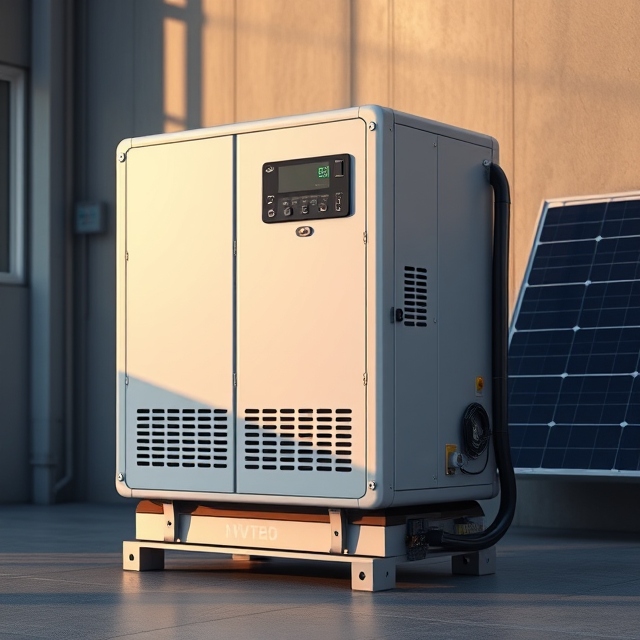
Hybrid solar inverters function by converting the DC (Direct Current) electricity produced by solar panels into AC (Alternating Current) electricity, which is used in homes and businesses. They also manage the flow of energy to and from the battery system.
Here’s a brief overview of the process:
- Solar Generation: Solar panels capture sunlight and convert it into DC electricity.
- Energy Conversion: The hybrid inverter converts the DC electricity into AC electricity for household use.
- Battery Charging: Excess energy can be sent to charge the battery for later use.
- Grid Connectivity: If the battery is fully charged, any excess energy can be fed back to the grid, generating possible income via net metering.
- Power Management: The inverter monitors energy usage and decides the best source for powering your home.
Comparison with Traditional Inverters
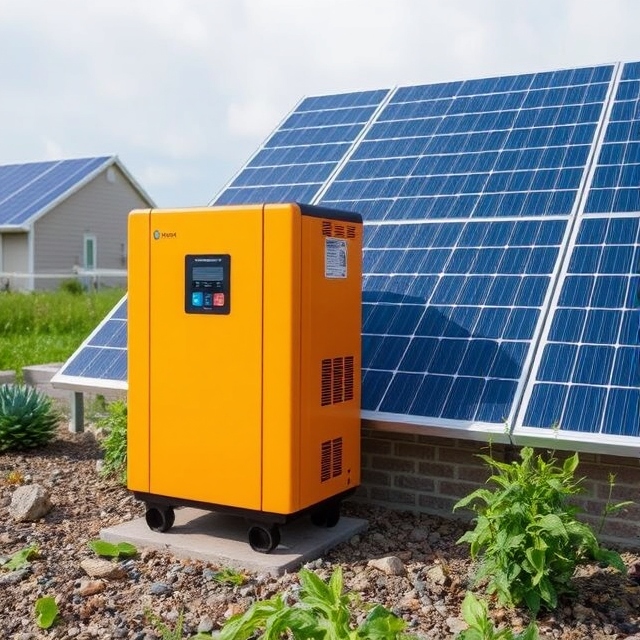
Hybrid inverters provide several advantages over traditional inverters, such as:
| Feature | Hybrid Inverter | Traditional Inverter |
|---|---|---|
| Battery Compatibility | Yes, supports energy storage | No, does not support batteries |
| Backup Power | Yes, provides backup during outages | No, relies solely on grid power |
| Feeding to Grid | Yes, can sell excess power back | Yes, can sell excess power back |
| Cost | Generally higher upfront cost | Lower upfront cost |
| Installation Complexity | More complex due to battery integration | Less complex |
Features to Look For in a Hybrid Solar Inverter
When selecting a hybrid solar inverter, consider the following features:
- Power Capacity: Ensure the inverter has enough power to support your home’s energy needs (5kW, 8kW, 12kW, etc.).
- Efficiency: Look for inverters with higher efficiency ratings to maximize energy conversion.
- Compatibility with Batteries: Ensure the inverter supports the type of battery you plan to use (e.g., Deye battery).
- Monitoring Capabilities: Advanced models often come equipped with apps for real-time monitoring.
- Warranty and Support: A longer warranty indicates manufacturer confidence in their product.
Installation and Maintenance of Hybrid Solar Inverters
It’s crucial to hire a qualified professional for installing hybrid inverters to ensure safety and compliance with regulations. Regular maintenance checks, typically once a year, are advisable to keep the system functioning efficiently.
Cost Considerations for Purchasing a Hybrid Solar Inverter
The price of hybrid solar inverters varies widely based on features and brand. Here’s a rough overview:
| Brand | Model | Price Range |
|---|---|---|
| Sol Ark | Sol Ark 12k | $3,500 – $4,500 |
| Deye | Deye 5k/8k inverter | $1,500 – $2,800 |
| Sunsynk | Sunsynk 5kw/8kw hybrid inverter | $1,700 – $3,200 |
| Goodwe | Goodwe hybrid inverter | $2,000 – $3,500 |
Prices are subject to change based on location, availability, and installation specifics.
Case Studies of Successful Hybrid Solar Inverter Installations
- Residential Focus: A family in California installed a Sunsynk 8kw hybrid inverter along with battery storage, reducing their monthly electricity bill by over 60%.
- Commercial Installation: A business in Texas integrated a Sol Ark inverter with a 12kW capacity and battery backup, allowing for increased operational efficiency and backup power during outages.
Conclusion: The Future of Hybrid Solar Inverters
With ongoing advancements in technology and increasing emphasis on renewable energy, hybrid solar inverters are poised to play a critical role in the future of energy systems. They provide a versatile solution for energy independence, cost savings, and sustainability.
FAQs
What is the best hybrid solar inverter on the market?
There is no definitive answer as it depends on individual needs. Popular options include Sol Ark, Sunsynk, and Solis.
Can I use a hybrid solar inverter without batteries?
Yes, hybrid inverters can operate without batteries, but their unique benefits may be underutilized.
What is the average lifespan of a hybrid solar inverter?
Most hybrid inverters have an average lifespan of 10-15 years but can last longer with proper maintenance.
Are hybrid inverters worth the investment?
For many homeowners, the long-term savings on energy bills and the added reliability during outages make hybrid inverters a worthwhile investment.
Making an informed decision about the right hybrid solar inverter for your needs today can significantly impact your future energy management.
